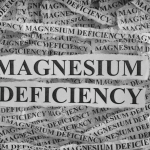
7 signs of Magnesium Deficiency you should never ignore
March 18, 2025
5 Science-backed Supplements that can Eliminate Stress
April 23, 2025Zinc is an essential mineral that plays a vital role in numerous bodily functions.
A deficiency in Zinc can lead to a range of serious health problems.
In this article, we’ll explore 7 key signs that may indicate your zinc levels are too low.
Disclosure: Some of the links below are affiliate links. This means that, at zero cost to you, we will earn an affiliate commission if you click through the link and finalize a purchase.
1. Fatigue
Zinc plays a crucial role in energy production, and its deficiency can lead to persistent fatigue.
This essential mineral supports over 300 enzymatic reactions that convert nutrients like proteins, fats, and sugars into usable energy.
When zinc levels are insufficient, the body struggles to generate energy effectively, leaving you feeling drained and lethargic.
In one study, researchers investigated the impact of zinc supplements on fatigue in elderly individuals.
A clinical trial was conducted with 150 participants aged 60 and older, divided into intervention and control groups.
The intervention group received a daily dose of 30 mg of zinc for 70 days, while the control group received no treatment. Fatigue was measured before and after the intervention using the multidimensional fatigue inventory.
Results showed that zinc supplementation significantly reduced fatigue and increased serum zinc levels compared to the control group.
Based on these findings, the researchers recommend zinc supplementation to help combat fatigue.
2. Hair Loss
Zinc is vital for maintaining healthy hair as it supports the function of hair follicles by promoting cell growth, repair, and keratin production.
When zinc levels are low, the body prioritizes its use for critical physiological processes, which can leave hair follicles undernourished.
3. Eye Problems
Zinc is essential for eye health, as it helps photoreceptors process light and activates vitamin A for good vision, especially at night.
A deficiency can lead to poor night vision, a higher risk of macular degeneration, cataracts, and less protection from UV damage due to reduced melanin production.
In one study, which was conducted as part of the Age-Related Eye Disease Study (AREDS), evaluated the long-term effects of 80 mg daily zinc oxide and 2 mg cupric oxides supplementation in adults aged 55–80 with age-related macular degeneration (AMD) over five years.
Among 3640 participants, findings from 717 individuals showed that zinc supplementation significantly increased serum zinc levels by 17% compared to 2% in the non-supplemented group with stable effects from the first year, suggesting improved zinc status, a factor important for maintaining healthy eye function.
4. Reduce Inflammation
Zinc deficiency can lead to increased inflammation by disrupting critical immune and cellular functions.
Zinc plays an essential role in regulating inflammatory pathways, including suppressing the activation of Nuclear Factor Kappa B, a protein complex that drives the production of pro-inflammatory molecules like cytokines.
When zinc levels are insufficient, this regulatory mechanism weakens, leading to an overproduction of inflammatory cytokines such as tumor necrosis factor-alpha (TNF-α) and interleukin-6 (IL-6).
In one systematic review and meta-analysis, researchers examined the effects of zinc supplementation on inflammatory biomarkers and oxidative stress in adults, analyzing 25 clinical trials with 1,428 participants.
The results showed that zinc supplementation significantly reduced inflammatory markers like C-reactive protein and interleukin-6, as well as oxidative stress markers like malondialdehyde.
It also notably increased total antioxidant capacity.
5. Neurological Symptoms
Zinc is essential for brain function and neural communication.
It plays a key role in neurotransmitter regulation, synaptic signaling, and protecting neurons from oxidative stress.
When zinc levels are low, these processes can be disrupted, potentially causing cognitive impairments like difficulty concentrating, memory issues, and even mood disorders such as depression or irritability.
In one systematic review and meta-analysis, researchers investigated the effects of zinc supplementation on circulating levels of brain-derived neurotrophic factor (BDNF) in randomized controlled trials (RCTs).
Four RCTs were included, comparing zinc supplementation to a placebo. Results showed that zinc supplementation significantly increased circulating BDNF and zinc levels, with no substantial heterogeneity between studies.
These findings suggest that zinc supplementation may effectively boost BDNF and zinc levels.
6. Loss of taste and smell
Zinc deficiency can impair the senses of taste and smell because zinc is essential for the proper functioning of taste buds and olfactory cells.
These sensory cells rely on zinc to regenerate and send signals to the brain.
Without enough zinc, the ability to detect flavors and odors diminishes, leading to conditions like hypogeusia (reduced taste) and hyposmia (reduced smell).
7. Skin Issues
Zinc is a key mineral for maintaining healthy skin, aiding in cell repair, growth, and immune function.
When zinc levels are low, skin can become prone to rashes that resemble eczema, often appearing dry, cracked, or shiny in sensitive areas like around the mouth and hands.
Zinc deficiency also slows wound healing, increases infection risks, and may trigger hair loss.
How to Combat Zinc Deficiency
The fastest way to combat zinc deficiency is to take a zinc supplement as seen by research. If you are interested in a good zinc supplement we have put a link in the description.
As with any supplement, it’s crucial to consult with a healthcare professional before starting zinc supplementation, especially if you have any underlying health conditions or are taking other medications.
They can help determine the appropriate dosage and ensure it’s safe for you.
The other way is to eat foods rich in zinc, these include red meat, Oysters, Poultry and Seafood.


